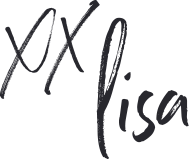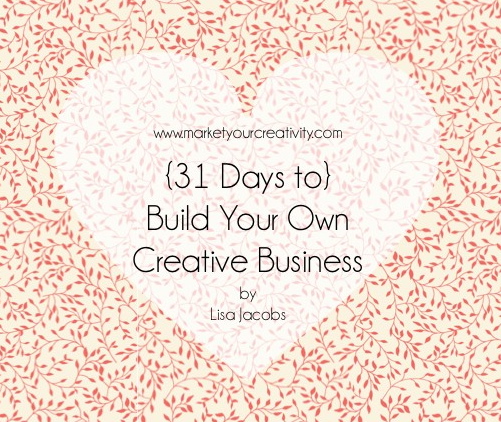Welcome back to the Build Your Own Creative Business 31 Day Series! This is {Day 4} of the program (click here to catch up from Day 1), and today I’m talking about what to name your new or existing business.
Today’s topic takes me back to some very important advice I read as I was just starting the Energy Shop:
Build your business with the intention of selling it.
This sentence helps you, as the business owner, think more long-term. Whether you’re considering what to call your future business, or thinking about changing the name of an existing one, there are a few things to consider:
1. Is it possible to make it keyword rich?
2. Is the domain available (www.yourbusiness.com)?
3. Is it wise to give it your own name?
The keywords and domain become important later in the series when we discuss how to get your shop found online. While you’re deciding on names, test which domains are available by checking for its availability at a domain provider (my go-to domain provider is united domains, but there are other reputable sites to choose from).
Should you give the business your name?
Again, think of the advice at the top of this article. If your business is you, then it’s perfectly acceptable to call the business by your name. However, if the business is a reflection of something that you love, it’s better to name it in a way that helps brand it. If you’re at the start of your business, the best way to gauge if your name should be the business name is to check it against your role model businesses (please refer back to {Day 3} to identify your role model business).
Here’s where it might work:
- Life or business coach. For example, Martha Beck is a best-selling author, popular speaker, and a regular O Magazine contributor. Her empire involves teaching and certifying other aspiring life coaches. Her website is rightfully named Martha Beck.
- High-end designer. For example, Michael Kors has been designing fashion since he was a teenager (he’s now 53 years old). He started paying his dues in 1977 when he enrolled in fashion school, worked for several high-end stores and a French fashion house before leaving it all and launching his own brand in 2003. His online storefront can be found at Michael Kors.
- Service for hire: event photographer / party planner / local personality. Some creative businesses are dependent on local customers, and it’s a good idea to incorporate your name into your brand so that it gets shared and remembered more easily.
- Traditional artist. I have a friend who has a very traditional view of how art should be sold. Whatever her reasons, she does not sell prints or reproductions online. She is more than willing to abide by the “starving artist” mentality because she feels it keeps the integrity and value of her work high. She wishes to be known by her name as an artist, or not known at all. Is this a good marketing decision? I think not, but some people prefer to be selective (and adamant) about the success they wish to achieve.
If any of the above look like good role models for your business then it may be a good idea to name the business after yourself. However, I remain a fan of businesses with a branded name. I follow a lot of popular bloggers, but few of my favorites are named after the person who writes them (the exceptions are life and business coaches): Think Traffic, August Empress, Handmade Success, Going Home to Roost, Handmadeology, and The Pioneer Woman to name a few. 😉
Beyond the creative industry, consider Bethenny Frankel. She launched a company called Skinny Girl … it has a likeness of Bethenny in the logo, and what a brand it’s become! Do you think it would have had the same impact if she named the business Bethenny Frankel?
How to Name Your Business
Naming your business is an exercise in branding.
- What are some words you would use to describe your business?
- How does your finished product make people feel?
- What are the reasons that you love to make what you make?
Write all of these answers down on a sheet of paper. Just like in branding, ask:
- What colors represent what you have there?
- What symbols come to mind?
- If you had to draw a picture of what this business represents,what would it look like?
When you do come up with some sample names for your business, be sure to ask yourself if it matches your product and your theme. Is it universal (could you blog and market under that name)? Is it open-ended (could you expand your business in that name if you choose to)?
That’s going to do it for Day 4 of the 31-day series! Ready to continue? Join me for {Day 5} where we’ll discuss trimming your business expenses.
***As promised and in honor of the 31 days to Build Your Own Creative Business Series, I’m offering my complete business-boosting e-program, Shop Fundamentals ($57) for $31 while it runs! Click here to learn more.***



Awesome tips here – thanks for linking up!
Sarah @ A Cat-Like Curiosity
Hi Sarah,
Fellow rooster, and I loved your link-up post! 🙂
Hi there! This article is really good! i found you via link party and I will definitely be back for more of this series! I’m your newest follower.
Danielle@mysnippetsofinspiration.com
Hello Danielle,
Thanks for stopping by! I “liked” you on Facebook 🙂
Very good input. It is hard to go back and change the name if you’re relatively established so starting out right can make a huge difference.
Very true, Teena. Thank you!